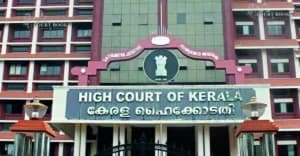The Allahabad High Court has upheld the decision to deny Economically Weaker Sections (EWS) reservation in the recruitment of 69,000 assistant teachers in Uttar Pradesh, a process that began in 2020. The Division Bench comprising Justice Ashwani Kumar Mishra and Justice Praveen Kumar Giri delivered this judgment while hearing multiple special appeals, including the lead case Shivam Pandey and Others vs. State of U.P.
The dispute revolved around the applicability of the EWS quota, introduced via an office memorandum on 18 February 2019 and later formalized under the Uttar Pradesh Public Services (Reservation for EWS) Act, 2020. Petitioners claimed that the recruitment advertisement was issued on 17 May 2020, well after the EWS policy’s introduction, and hence, the 10% reservation should apply.
However, the Court noted:
“Though EWS reservation was validly introduced in U.P. by the executive order of 18.2.2019 and later protected by law, the recruitment process in question had already advanced to a stage where implementing the quota was no longer feasible.”
The Court highlighted that recruitment processes are deemed to begin when the advertisement is published. In this case, it was post-EWS notification. Still, despite acknowledging that EWS reservation should have been extended, the Court found that all 69,000 positions were already filled. Moreover, none of the selected candidates were made parties to the case.
“It is a settled principle that directions affecting selected candidates cannot be passed in their absence. Also, no details of EWS status were collected from applicants, making any retrospective implementation unworkable.”
Read Also:- Allahabad High Court Urges Finance Ministry to Train DRT Officers Over Repetitive, Unreasoned Orders
The petitioners also relied on the 103rd Constitutional Amendment, which empowered states to provide for EWS reservation. The Court agreed that the State had both legislative and executive authority to implement such reservations, but stressed that legal relief at this stage was impossible.
“Law is well settled that appropriate legislature can always introduce legislation with retrospective effect. But relief cannot be granted when doing so would disturb completed selections,” the Bench said.
Additionally, the Court took note of the Supreme Court’s ruling in Devesh Sharma v. Union of India, pointing out that many petitioners had B.Ed degrees, rendering them ineligible for the posts per guidelines.
Read Also:- Denying Girls Education Over Menstrual Health Issues is Unacceptable: Rajasthan High Court
Thus, while the Court recognized the validity and intent behind EWS reservation, it concluded that the relief sought couldn’t be granted due to procedural constraints and practical difficulties.
“Even though we hold that EWS reservation was liable to be extended in the recruitment made of 69,000 assistant teachers, the petition is dismissed as implementation is not feasible at this stage,” the judgment stated.
Case Title: Shivam Pandey And 5 Others v. State Of U.P., Through Secretary Department Of Basic Education, Government Of U.P. And 2 Others Special Appeal No. 259 of 2024














